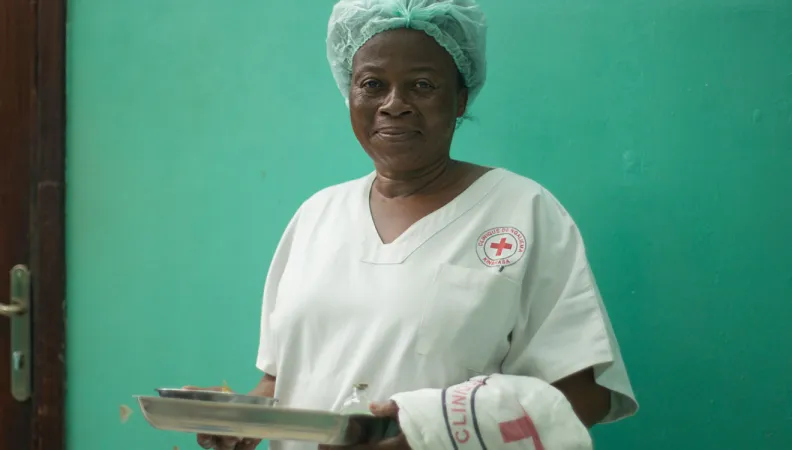Share the page
Congo Confronted with Series of Epidemics, but a New Project Provides Boost to Healthcare System
Published on

In the poorest areas in the Democratic Republic of Congo capital, the emergency health situation is causing high maternal and infant mortality. The Promekin II project has supported two maternity wards being set up in the capital Kinshasa, and mobile clinics and awareness campaigns have enabled the country to better cope with a series of epidemics.
Despite its best efforts, the Democratic Republic of the Congo’s health situation remains precarious. Maternal and neonatal mortality rates, estimated at 547 deaths for 100,000 living births and 28 for 1,000 respectively, are among the highest on the continent.
Increased cases of infectious diseases like malaria, HIV, and tuberculosis, as well as repeated epidemics of Ebola, measles, cholera and Mpox add to the country’s already burdened healthcare system.
To meet these challenges the RDC Ministry of Public Health launched a National Health Development Plan (NHDP) in 2019, intending to create and improve healthcare quality and access to it for all. As part of this, AFD provided €17 million of funding towards the mother and child promotion project (PROMEKIN II) after an initial part of the program provided equipment for the Monkolé and Ngaliema hospitals in Kinshasa between 2012 and 2019.
See also: Promekin I project evaluation summary (in French)
This project is vital for capitalizing on the initial efforts and strengthening the healthcare system in these vulnerable urban areas. Its global approach and ability to adapt to health crises firms up implementing a strategy reinforcing Democratic Republic of the Congo government policies and its healthcare capacities, even though inequalities affect country, particularly in urban disadvantaged areas in Kinshasa.
PROMEKIN II focuses on these areas and aims to improve access to healthcare and reduce mortality by bolstering quality of services and making access more open to all. With Covid-19 coming to the forefront, a component dedicated to health safety has been added, including training health personnel and creating a center dedicated to treating the disease.
To date, PROMEKIN II has resulted in a new maternity ward with a specialized surgical unit in Kingasani, in east Kinshasa. It can safely deliver between 3,000 and 4,000 babies, with the best care for newborns needing emergency resuscitation. A second maternity unit is being built in Binza, in the south of the capital, which is due to be finished in December 2024. More than 50,000 people have also benefited from the healthcare offered through mobile clinics, in collaboration with 22 community organizations in the health areas involved.
